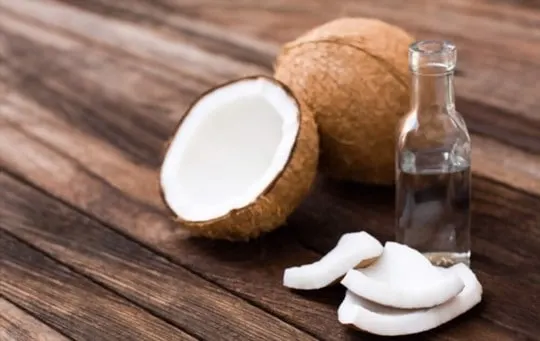Cooking’s a creative adventure, right?
And sometimes, we hit a snag, like running out of an ingredient—palm oil, for example. No palm oil? No problem. We’ve got your back.
Our kitchens are full of surprises, and it turns out, there are some pretty amazing substitutes you might not have thought about.
Think about the joy of discovering a new favorite go-to, all because you dared to swap it out.
Plus, it’s not just about the pinch-hit; it’s a chance to maybe, just maybe, make that dish a tad healthier.
We’re here to share the top five rock stars that can take palm oil’s place on your ingredient list. Ready to shake things up?
The 5 Best Substitutes for Palm Oil
Palm oil is a widely used vegetable oil known for its versatility and unique properties.
However, due to concerns about its environmental impact and sustainability, you may be seeking alternatives to palm oil.
In this guide, we will compare the top 5 substitutes for palm oil, discussing their key characteristics and suggesting proper ratios to ensure excellent results in your culinary creations.
| Substitute | Key Characteristics | Proper Ratio |
|---|---|---|
| Rapeseed Oil | Neutral flavor, similar texture to palm oil, and suitable for various cooking applications | Use an equal amount of rapeseed oil as a substitute for palm oil |
| Sunflower Oil | Mild flavor, light texture, and high smoke point; suitable for frying and baking | Use an equal amount of sunflower oil as a substitute for palm oil |
| Vegetable Margarine | Solid fat with a similar texture to palm oil, often used in baking and spreads | Use an equal amount of vegetable margarine as a substitute for palm oil |
| Coconut Oil | Rich flavor, solid at room temperature, and suitable for baking and cooking certain dishes | Use an equal amount of coconut oil as a substitute for palm oil |
| Canola Oil | Neutral flavor, light texture, and high smoke point; suitable for general cooking purposes | Use an equal amount of canola oil as a substitute for palm oil |
Now let’s dive into each substitute in more detail:
1 – Rapeseed Oil

Rapeseed oil is another excellent alternative to palm oil.
It has a high smoke point which means it doesn’t burn easily, making it suitable for even higher heat cooking methods such as frying and roasting.
This flavorful vegetable oil also contains monounsaturated fats, which are good for your health and reduce the risk of heart disease.
Not only is rapeseed oil a great substitute for palm oil in cooking, but you can also use it when baking.
In addition, it tastes delicious in salads and mayonnaise.
Compared to sunflower oil, rapeseed contains compounds in the oil that may help protect against certain types of cancer.
Considering that rapeseed oil can be used in almost every aspect of cooking and baking, it’s understandable why many people choose it as a substitute for palm oil.
- Key Characteristics: Rapeseed oil has a neutral flavor and a similar texture to palm oil, making it a suitable substitute. It is versatile and can be used for various cooking applications.
- Proper Ratio: Use an equal amount of rapeseed oil as a substitute for palm oil. Adjust the quantity based on your taste preferences and recipe requirements.
2 – Sunflower Oil

Sunflower oil is another popular alternative to palm oil that many people overlook.
This oil is very high in vitamin E.
It also contains many monounsaturated fatty acids, which are the good kind of fat that helps reduce your risk for heart disease.
Just like rapeseed oil, it can be used in baking and salads.
Sunflower oil is another great choice when frying foods at high heat because it doesn’t burn as quickly.
Sunflower oil has a mild flavor, making it easy to incorporate into many dishes without dramatically changing the taste.
It’s worth noting that sunflower oil may not be suitable for frying fish because its smoke point is relatively low.
Therefore, you’ll want to use another type of oil if your dish includes fish or seafood.
- Key Characteristics: Sunflower oil has a mild flavor, light texture, and high smoke point, making it suitable for frying and baking. It can be used as a substitute for palm oil in many recipes.
- Proper Ratio: Use an equal amount of sunflower oil as a substitute for palm oil. Adjust the quantity based on your taste preferences and recipe requirements.
3 – Vegetable Margarine

Vegetable margarine is another popular substitute for palm oil because it’s very cheap and widely available to buy in most grocery stores worldwide.
This buttery spread is usually made from a mix of oils, such as those found in rapeseed, soybean, sunflower, or canola.
In addition, it’s rich in omega-3 fatty acids, which makes it good for your heart too.
If you want to use vegetable margarine as a substitute for palm oil, then keep some things in mind.
First of all, it has a lower melting point than butter, which means that certain recipes may not turn out properly.
You’ll also need to keep in mind that it has a much stronger flavor, so you may want to reduce the amount of vegetable margarine called for in your recipe.
- Key Characteristics: Vegetable margarine is a solid fat with a similar texture to palm oil, often used in baking and spreads. It can be used as a substitute to achieve similar results in recipes.
- Proper Ratio: Use an equal amount of vegetable margarine as a substitute for palm oil. Adjust the quantity based on your taste preferences and recipe requirements.
4 – Coconut Oil

Coconut oil is another popular choice as a substitute for palm oil.
This highly saturated fat has been shown to increase good cholesterol and help reduce the risk of heart disease.
In addition, it’s very stable at high temperatures, which makes it perfect for all kinds of cooking methods such as frying or baking.
Many people prefer to use coconut oil instead of palm oil for baking.
It also has a delicious buttery flavor, ideal for certain dishes like cookies, muffins, and quick bread.
Many people love to use coconut oil in their coffee because of the sweet taste that it adds to hot drinks.
Coconut oil is very convenient because you can buy it in large containers at most grocery stores.
This means that you never have to worry about running out of it like you would with other cooking oils.
Keep in mind that this type of oil tends to be pricier than your average cooking oil, so make sure you only buy the amount you need.
- Key Characteristics: Coconut oil has a rich flavor and remains solid at room temperature, making it ideal for baking and specific cooking applications. It can add a distinct taste and texture when used as a substitute for palm oil.
- Proper Ratio: Use an equal amount of coconut oil as a substitute for palm oil. Adjust the quantity based on your taste preferences and recipe requirements.
5 – Canola Oil

The final substitute that we will discuss is canola oil.
This oil is a great substitute for palm oil because it has a very low level of saturated fat which helps reduce your risk for heart problems.
In addition, it’s high in both omega-3 and omega-6 fatty acids which are the good kind of fat that helps keep your heart healthy.
Even though canola oil has a mild flavor, it’s a good substitute for palm oil if you use it to cook food at medium-high heat.
It also tends to have a neutral taste, which won’t make your dish taste different.
Canola oil is nearly identical to palm oil when cooking foods in many ways.
In addition, canola oil is very affordable compared to other cooking oils, which makes it a great substitute for palm oil.
You can purchase it from large bottles at most grocery stores, and you only need a small amount in your dish.
So make sure to buy the size that best fits your needs.
- Key Characteristics: Canola oil has a neutral flavor, light texture, and a high smoke point, making it suitable for general cooking purposes. While it may not replicate the exact properties of palm oil, it can serve as a versatile substitute.
- Proper Ratio: Use an equal amount of canola oil as a substitute for palm oil. Adjust the quantity based on your taste preferences and recipe requirements.

Leave a comment